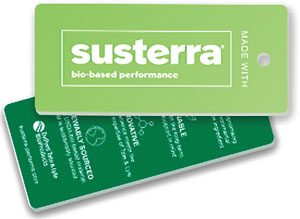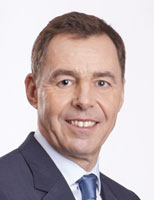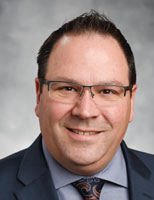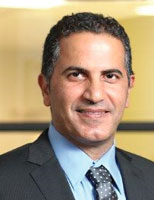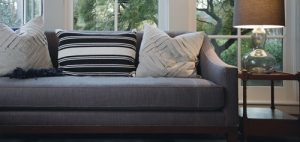MINNEAPOLIS — March 16, 2017 — GKD-USA Inc. has introduced a completely new mesh filter for the oil and gas exploration and water filtration markets. Called porometric mesh, the product is a new mesh weave with significantly more porosity and air permeability. Developed from a comprehensive experimental study in which the erosion behavior of filter media for sand control in well pipes was investigated, the new type of mesh brings oil and gas exploration facilities more throughput at local pore velocities. For water and wastewater filtration facilities, the mesh offers high permeability, low-pressure losses and a sharp particle retention rate
“The porometric mesh outcome is a very open 3-dimensional mesh construction that, while maintaining a constant volume flow rate, further reduces local pore velocity by up to 40 percent, with throughput increasing by a similar factor,” said Peter Wirtz, general manager, GKD Solid Weave Business Unit. “Properties like these represent unprecedented advantages for efficient oil and gas exploration and water filtration.”
A major factor for the profitability of crude oil and gas production is the ratio between production rates and well pipe life cycles. Typical weak points are the filter media deployed for sand control in the pipes, because the development of higher local pore velocities is most pronounced where the filter mesh has the smallest openings. As the inlet face velocity increases, so does the mechanical impact on the surface of the filter media due to the sand particles contained in the fluid, resulting in erosion through material abrasion.
Lab tests lead to new porometric mesh
Using supplementary CFD simulations, GKD demonstrated the relationship between inlet face velocity and distribution of pore velocities. Through this computer modeling exercise, researchers learned that through higher volume porosity of the deployed filter media the local flow velocity in the mesh pore can be reduced. These findings provided the impetus for the porometric mesh product.
Lab tests conducted by GKD compared retention rates of plain dutch weave, twilled dutch weave and RDTW mesh types (reverse twilled dutch weave). Each sample exhibited a pore size of 150 µm and was compared in terms of pressure drop over time. Only the single-layer Porometric mesh achieved premium sand control for the full duration of the sand evaluation test. The reason for the success of the Porometric mesh was the higher volume porosity of its specific construction, which leads to a correspondingly lower flow velocity.
Double the permeability
On the basis of these findings, GKD used computer simulation and design studies to develop the new porometric mesh product. With a pore size of 150 µm, this new mesh type achieves an air permeability of 4,800 l/m²/s at a pressure of 200 Pa. In contrast, a plain weave with the same pore size only manages an air permeability level of 2,500 l/m²/s at 200 Pa. In other words, at the same volume flow rate, the significantly more open structure of the new mesh type almost halves the local pore velocity.
The secret of this performance capacity is the porometric mesh’s innovative construction. Thanks to its 3-dimensional slot-shaped structure with rectangular pores, particles above the required cut point are quickly and reliably separated. At the same filter fineness, the porometric mesh’s higher porosity gives it a degree of permeability almost twice as high as other comparable mesh types.
“The unparalleled performance of the porometric mesh is evident in the comparison with other filter screens available on the market,” Markus Knefel, research and development manager, GKD Solid Weave Business Unit. “In spite of its high porosity of over 70 percent, this 3-dimensional mesh is extremely stable. Its open structure also offers advantages in terms of weight. For oil and gas exploration and water filtration professionals, this means significant savings because the reduction in material consumption is reflected in lower production costs.”
One less layer, thanks to 3D structure
Due to the specific weaving process, porometric mesh has a ribbed structure, which yields an additional advantage in the specific case of deployment in oil and gas exploration. The conventional structure of the basepipe includes four layers: a drainage layer, the filter screen, a second drainage layer as a spacer, and a perforated plate. Porometric mesh takes over the function as the spacer upstream from the perforated plate, thus eliminating one layer in the basepipe structure.
“When porometric mesh is deployed as a filter media instead of plain dutch weave mesh, the drainage layer between the filter screen and the perforated plate can be eliminated without compromising the permeability of the array,” Brian Dayton, solid weave manager, GKD-USA. “The cost saving which results from eliminating the intermediate drainage layer is further convincing proof of the high efficiency of porometric mesh for sand control in oil and gas exploration and water filtration. With these multiple advantages, GKD’s high-porosity porometric mesh relegates all plain dutch weaves to the rear of the field.”
Posted March 21, 2017
Source: GKD-USA

